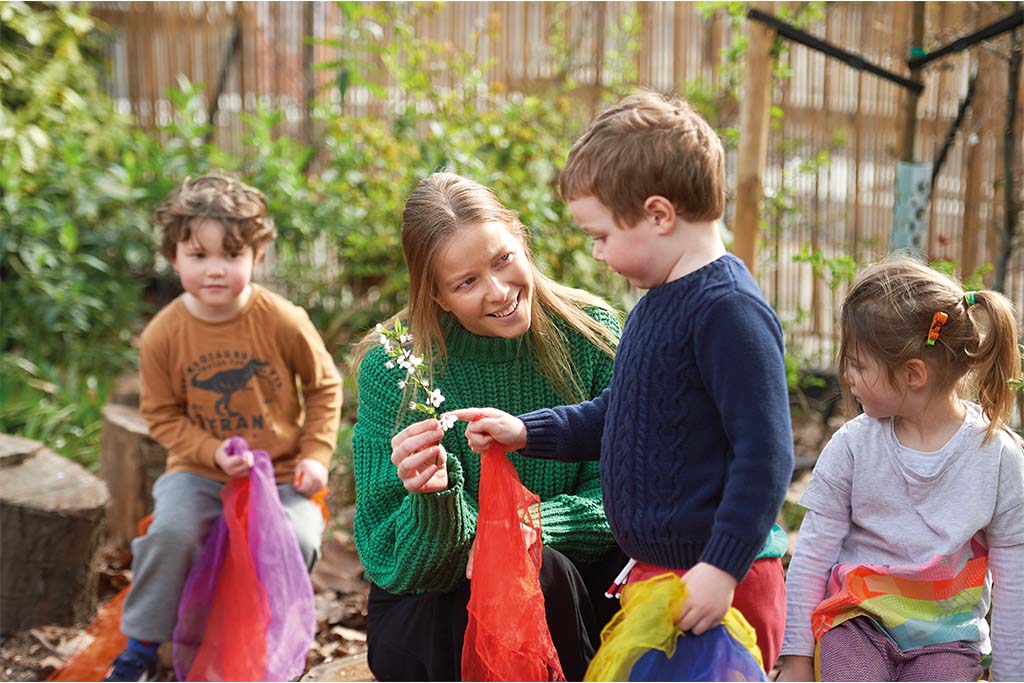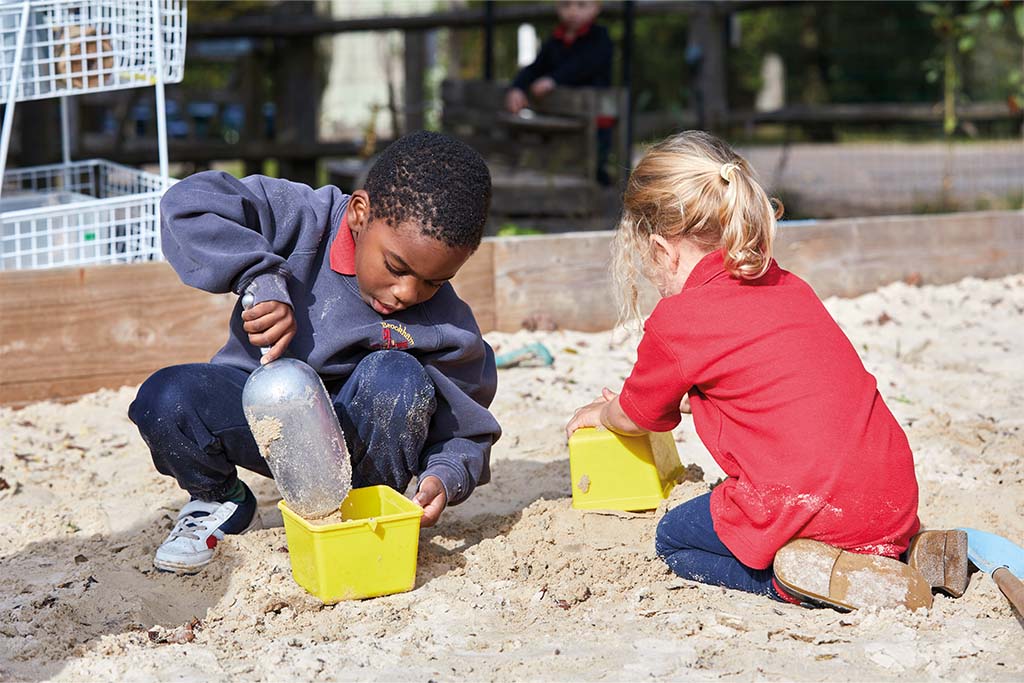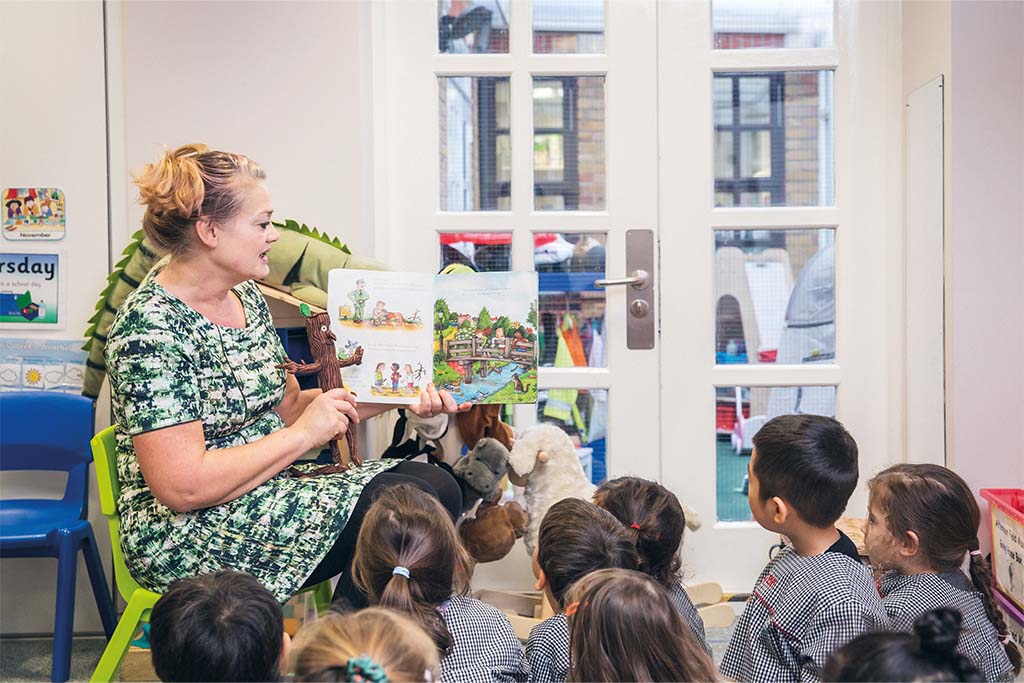Nursery: Homework for Parents
By
3 years ago

First weeks at nursery can be an anxious time for parents and young children, but help is at hand, says Victoria Lambert

Dropping off a child at nursery for the first time can be highly emotional – on all sides. Yet, choose wisely and ask the right questions, and the event will turn into a highly rewarding experience for everyone.
But that can depend on what happens at home as well as in the nursery setting. Experts point out there are lots of ways to help young children settle into the early years experience. Plus, parents can be supportive around the start of education too – without becoming Tiger Mums.
It all starts with making the right choice in the first place. Kelly Gray, Head of Bassett House, part of the Dukes Education group in west London, says it’s important you visit potential nurseries and get to know them and their heads.
‘I take a lot of time showing parents around and answering all their questions,’ she says, adding that it is a job she refuses to deputise to other staff. ‘At Dukes, we feel strongly that it is the head whom the parents want to meet as it is their vision you are buying into.’
She adds: ‘It is always about gut feel, not what your friends are saying. You will know if a place is right as you walk around it.’ One question Gray says is perfectly normal, and indeed expected, is where can parents realistically expect their child to go on to after this particular nursery.
‘Parents are often looking several steps ahead,’ she says. ‘It’s not uncommon for us to find parents anxious about 11+ when a child is just coming into pre-school. We explain that by the time their child is due to leave, we will have a thorough understanding of them and where they should go next. We are perfectly placed to give that guidance.’
Once your child starts at nursery, typically at age four, you can expect settling in to take a little time, says Gill Whiteside, Head of Little Chepstow Nursery School in Notting Hill.
‘We work very closely with parents,’ says Whiteside, ‘on the settling in process and encourage parents to be positive about starting nursery as we have seen anxiety really rubbing off on children. ‘It is an exciting time and children generally take two-to-three weeks to settle so don’t expect it from day one.’
Your parental homework at this point is to make sure your son or daughter is ready for this new chapter.
That means, says Whiteside, thinking of what the next stage of development is and embracing it. ‘So that may mean giving up bottles and dummies,’ she says. ‘Letting children feed themselves, and not always travelling by pushchair. Potty training is becoming something that is achieved later and later. In essence, allow children to grow, develop and become independent.’
She adds: ‘They are very capable little beings, often able to do far more than one thinks.’
That point is echoed by Sam Forster, Head of Nursery at Brookham School, Hampshire. ‘Help encourage independence,’ says Forster, ‘grow their ability to manage things themselves, for example tying their shoes and tidying their toys away.’

While you may be longing to hear how they have got on – away from you – Forster suggests you curb your curiosity. ‘Don’t expect children to tell you everything about their day,’ she says, ‘enjoy listening to what they want to share.’
This is in part due to what will be natural tiredness. Gray points out that, ‘Your child will have had a long day full of often entirely new content. As adults, what most of us do each day is based on things we already know – we are using well-versed neural pathways.
‘That is not true for young children – they are constantly building new neural pathways and that is exhausting.’
She says this is why you should treat the idea of homework with caution. ‘When tired, children won’t want to commit to more. My best advice is to let your children be children. Homework should only ever be a consolidation task and the worst thing would be to turn a child off learning.’
As your child gets older, quality is better than quantity: 20 minutes completely focused beats two hours of fighting over learning numbers. And you can make the experience more pleasant by rewarding with a hot chocolate at the end.Lastly, if you have real concerns, reach out to your child’s teacher, she says.
Gill Whiteside agrees: ‘Build up a relationship with your child’s key worker, become part of the team that is there to work with and support the child (parents are a vital part of that team). No questions are silly, worries can be put to rest so don’t be afraid to approach a nursery to chat.’
As does Sam Forster, who adds: ‘Three-way communication (parent-setting-child) is what matters; there’s no ‘them and us’, we are all working together for the benefit of the child.
‘Do share information; knowing your child’s background will help them settle. Ask questions so you are informed of your child’s progress.’
And especially reading – which really is an area where parents cannot put in enough time. ‘Encourage a love of reading,’ says Forster, ‘make time to read and talk with your child.’

Read, read and read some more, says Gray. ‘Showing children the joy of books is vital particularly when they are young and sounding out every word so not experiencing the true joy of reading by themselves. It’s crucial they hear stories beyond their personal capability to read.’
Parents sometimes ask if books are ‘difficult enough’, she says. ‘Parents can have a tendency to want to push their children on.’ The answer to that is that a child should be able to read a book with 95 per cent accuracy and fluency before you move them on to a higher reading level.
‘That’s much better than reading a book which is too complex,’ says Gray, ‘where children have to sound out every single word or the content is way beyond their comprehension.’
She advises parents don’t just listen to their child read but also ask questions about what is happening. ‘It’s really important to get into that habit of being able to retrieve information from a book and learn to see subtext.’
Many parents get daunted by synthetic phonics, which is the system of learning to read by sounding out letters to make words. Kelly Gray says parents can become worried or anxious about helping their child as ‘they don’t want to get it wrong’.
Yet most children will follow a rigorous phonics programme in school – so parents don’t need to worry about teaching it; they can just remind their children to do it. If you do join in, says Gray, make the sounds really clear and clean.
Keeping calm is good advice throughout this time, says Brookham School’s Sam Foster. ‘Avoid transfer of anxiety,’ she says. ‘Nervous adults make children nervous. Be upbeat, use positive language, try not to show your anxiety around your child.’
Adds Gray: ‘Remember this is a phase, just like when they were a baby and crying or having tantrums as a toddler. None of it lasts. It will all be okay in the end.’
READ MORE FROM SPRING SUMMER 2022 NURSERY SECTION
Far From the Madding Crowd | Green Shoots



